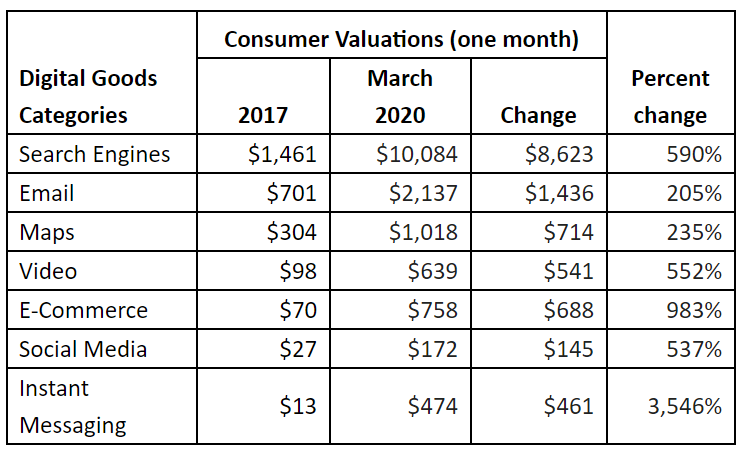Don't Punish Tech Companies For Being Great
During the COVID-19 pandemic, digital tools have become indispensable to millions of home-bound Americans. Information technology businesses have quickly created or refined systems for distance learning, teleworking, telemedicine, news dissemination, and e-commerce. Yet, despite these successes, there are new demands to regulate companies such as Amazon, Zoom, and Facebook. Companies that step up in a time of crisis should not be punished with aggressive government oversight.
Government-imposed lockdowns have stalled the economy and our lives by blocking us from physical movement. But we humans are adaptable. We’re substituting digital movements for physical ones wherever possible, and our new demands mean that our digital suppliers must rapidly expand and adapt.
And they have. Amazon hired thousands more workers and is prioritizing household staples and medical deliveries. Cable TV companies are handling 25% more internet traffic. Verizon reports a ten-fold increase in the use of collaboration tools by its customers, applications that enable customers to see and speak with colleagues, friends, and family. Zoom expanded to accommodate a 378% increase in video-conferencing. When uninvited guests began “Zoombombing,” Zoom adapted with new security measures.
How valuable are these responses to market demands? We undertook research in March to measure them. We extended the work of MIT economists Erik Brynjolfsson, Avinash Collis, and Felix Eggers who pointed out three years ago that the value of some of our most important digital services are missing from official estimates of the size of the economy, such as gross domestic product. In 2017 the missing value of Facebook alone was about $102 billion.
We measured how the pandemic has increased this value. The table below illustrates some of our findings, comparing them with the 2017 study. Increases in value ranging from 200% to over 3,500% might seem shocking, but they make sense. Why is one month of search $8623 more valuable today than in 2017? A recent report on public attitudes about the coronavirus found that Americans don’t trust the media and politicians for accurate coronavirus information, and instead search the internet for information from health professionals.
Table 1. Comparisons of consumers’ valuations of digital goods, 2017 versus March 2020

Working from home and distance learning make other tools more valuable, too. The value of Email jumped to $2,137. Instant messaging increased from $13 to $474. E-commerce went up by nearly 1,000%. Maps jumped $714 in part because of the importance of home delivery.
Some of this jump in value is because government regulators are letting market forces work. The Federal Communications Commission’s deregulatory policies encouraged internet service providers to build networks that are handling the new traffic. This isn’t the case in pro-regulation Europe where internet networks have been overwhelmed and inadequate. Search engines, e-commerce, and other digital services also enjoy greater economic freedom in the US than in Europe.
Yet, despite the demonstrated value of letting digital markets respond to customers, some antitrust advocates have trained their sights on these companies. Yale economist Fiona Scott Morton tweeted that Zoom’s growth during the pandemic is good reason for greater scrutiny should another company seek to merge with Zoom. Some lawyers are pushing for an investigation into how Amazon has prioritized the shipping of household and medical items.
Also asking for increased government control, New York Times journalists have expressednervousness that information technology companies are becoming too powerful during the pandemic, while refusing to acknowledge the utility of such companies during the crisis.
These are exactly the wrong responses. Businesses should not be punished or brought under greater scrutiny simply because they are valuable during the pandemic. Companies should not be made fearful of doing so well for customers that the company’s size will be interpreted as market power.
Lawmakers and policy makers should be explicit that companies serving customers and the country well in this time of need will not be hunted and punished for their good work. The people who matter are not the critics, but the people who step up and make life better.




